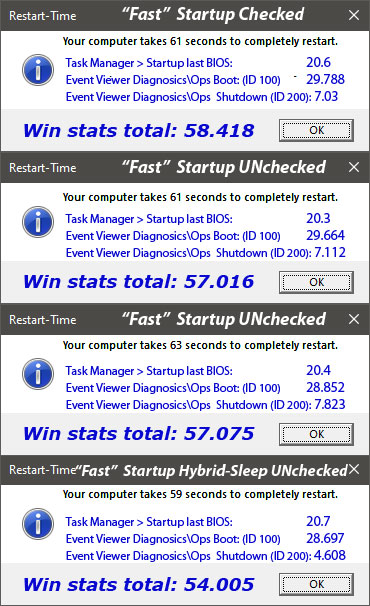New
#1
What is “Fast” Startup doing?
I‘ve recently (3 Oct ‘20) completed the Win7 –> Win10 migration (whilst the jury’s still out on whether I consider it an upgrade I’ll confess it’s going much better than feared) and am familiarizing myself with the changed environment. One thing that’s puzzling me is Fast Startup. Given the lack of consensus found on the net regarding the value of Fast Startup I ran some tests to satisfy my curiosity. My methodology was to (a) turn off AV, (b) shutdown from cmd window (shutdown /s /f /t 0) and (c) run vbs script with different scenarios:
The second Fast Startup UNchecked is because I was so startled at the first run having the same reboot time as Fast Startup checked. Apparently the most charitable thing that can be said – based on these observations – about the impact of Fast Startup on boot/reboot times is that it’s negligible at best.
What is Fast Startup doing since it doesn’t actually seem to have anything to do with starting up? Is it integral to some other function (?sleep, maybe?) or is it marketing trivia I can safely ignore?
Last edited by ritjesman; 07 Oct 2020 at 10:51.



 Quote
Quote